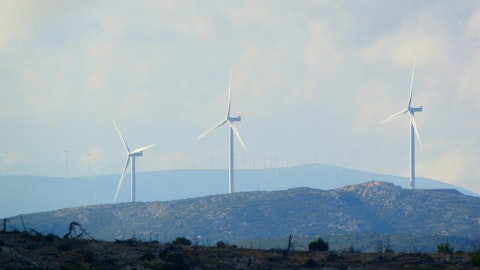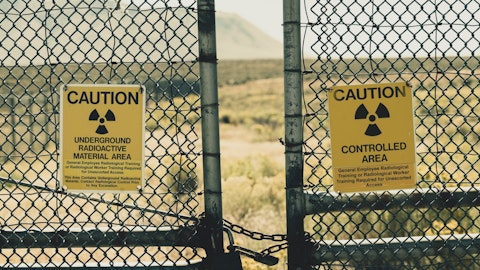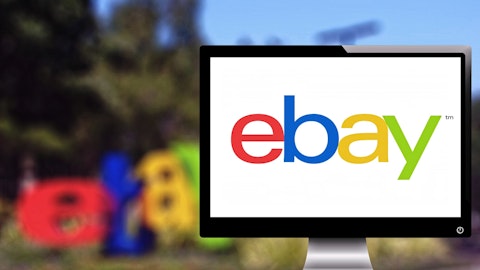Calvin Butler: Did it answer your question, David?
David Arcaro: Yes, absolutely. And I was just wondering on the €“ maybe just a quick other topic on the Chicago franchise agreement. I was wondering if you could just speak to the financial implications of the proposal that you’ve put forth? And your thoughts on the prospects to get that approved and when that could go into place? Thanks.
Calvin Butler: Absolutely. A couple of things. As we’ve been highlighting to you in our previous earnings call, we understood and have a clear understanding of what the City of Chicago was striving for. And I think the proposal that ComEd has presented in partnership with the Mayor outlines the goals of decarbonization, equity and workforce development. Within that ComEd over the course of the last couple of years as they’ve been negotiating this and putting this in place, understood the dollars in which they would do and what we would commit to as a company. Exelon, ComEd and alike and shareholder commitment to this effort because we value the partnership. So what has been outlined from the Mayor really is essence of all of that in terms.
Gil, as I mentioned, is here to talk about some of the details, but what we have laid out is that this process goes to the Rules Committee this month with the city. And from there, it will go to a committee of jurisdiction. And we’re confident that, as they begin to do an analysis of what we’re proposing, it will meet the aspirations of the city and achieve those goals overall. So on the financials, I’m going to turn it over to Gil to kind of walk you through what that is.
Gil Quiniones: Yes. So for the Chicago franchise agreement, there are actually two agreements. There’s the franchise agreement and the energy and equity agreement. And as Calvin mentioned, our goal was to align our proposal to Chicago’s Climate Action Plan and the state’s Climate Equitable Jobs Act, and we achieved those goals. In terms of the financials, it is a 15-year agreement with an option to extend for another five years and the first 15 years, we have committed €“ proposed to commit $100 million in shareholder dollars and if extended, another $20 million.
Jeanne Jones: And all of that’s baked into the guidance that we’ve provided.
Gil Quiniones: Correct.
David Arcaro: Okay. Understood. Great. Thanks so much.
Calvin Butler: Thank you, David.
Operator: Thank you. Our next question comes from the line of James Kennedy from Guggenheim Partners.
James Kennedy: Hey guys. Good morning. Congrats on the outstanding quarter.
Calvin Butler: Thank you, James. Good morning.
James Kennedy: So I guess just kind of keeping on the topic of Illinois, how are you thinking about the backdrop for transition at the commission this year, given there’s a vacancy, there some expired terms and some other overhangs on several at the moment?
Calvin Butler: Yes. James, great question, but I’ll be honest with you. When we look at our interactions and engagement with regulatory bodies, we anticipate turnover. And that is exactly why €“ although we have regular conversations about the process and what we’re proposing, our real engagement happens with our stakeholders, the stakeholders, our customers, residential, commercial and industrial. As I outlined in terms of ComEd even filing, I think there were over 45 stakeholder meetings, presentations over and over 1,000 different people attended these. So although the commission turnover is something that we deal within all of our jurisdictions, if we’re doing this right, and I think we are. We’re meeting the policy expectations of each of our jurisdictions, aligning our filings with those policies and engaging stakeholders at the grassroot level, the commission turnover should not be that big of a deal.





